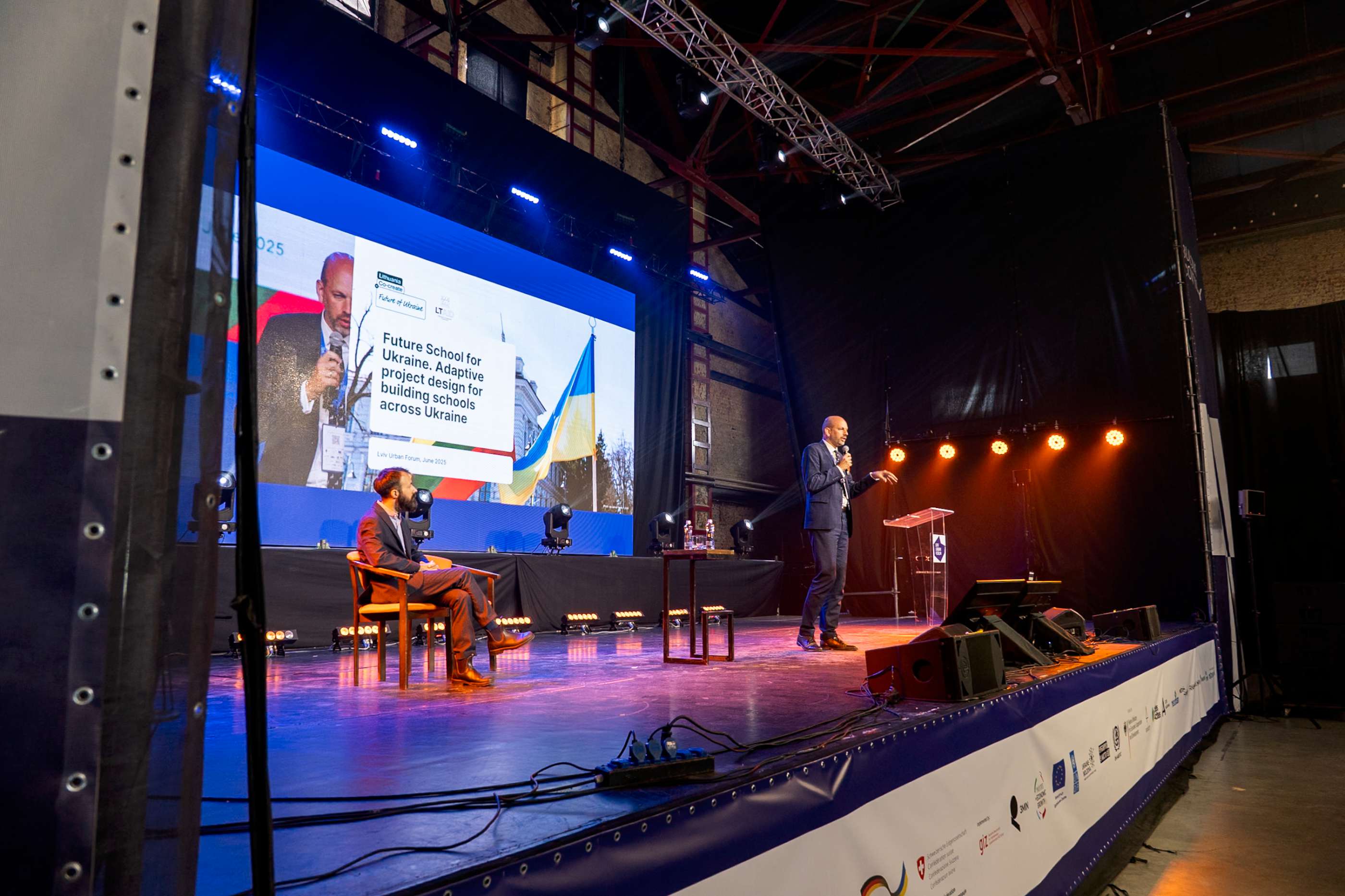“Future School for Ukraine” Project at Ukraine’s Leading Urban Event
On June 12-13, Lviv Urban Forum brought together over 1,000 prominent voices in urban development, recovery policy and architecture. As a platform shaping Ukraine’s post-war future, it was an opportune moment to highlight Lithuania’s growing support for Ukraine’s recovery.
At the Forum, the Lithuanian delegation presented the “Future School for Ukraine” initiative, implemented by CPVA. The project showcased its free-to-use, safe, and future-ready adaptive technical design for sustainable and inclusive school-hubs across the country.
Lithuania’s vision for rebuilding Ukraine’s school infrastructure was introduced by Ambassador-at-Large Darius Skusevičius and Scandurra Studio di Architettura (Italy) – the winning team of the “Future School for Ukraine” competition, working in collaboration with the Ukrainian Mykhailo Vustyanskyi’s team. They outlined the project’s development, current results, and next steps. Ambassador Darius Skusevičius, alongside Alessandro Scandurra, representing the technical design team, and Rūta Leitanaitė, Board member of the Architects Association of Lithuania, also participated in the dedicated discussion “Planning Social Infrastructure: Typical vs Adaptive vs Specific”.
For donors, the “Future School for Ukraine” offers a scalable, high-impact investment. For Ukrainian communities, it provides access to modern learning environments project design, an opportunity many communities would not be able to afford on their own. The “Future School” design reflects New European Bauhaus values, promoting not only safety and resilience but also aesthetics and community cohesion. It also fosters NEB’s sustainability goal, including circularity, zero-pollution, and biodiversity approaches.
Scandurra Studio is now developing the full, ready-to-adapt design package for school-hubs, turning winning concept into a practical solution. A handbook with a toolkit of the “Future School for Ukraine” project is available to download (PDF, 23MB).
The €500,000 project is funded by Lithuanian Fund for the Development Cooperation and Humanitarian Aid.

